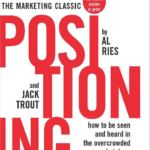 Airbnb’s CEO Brian Chesky on Remote Work – A Very Smart Take For Advertising Agencies
Airbnb’s CEO Brian Chesky on Remote Work – A Very Smart Take For Advertising Agencies
I just listened to a Verge decoder interview with the rather brilliant Brian Chesky. Definitely worth a listen to hear his take on new Airbnb features and, most importantly to me and anyone in creative management, how he manages the remote work, office + work-from-home issue. Here are some key takeaways on how to think through remote work and who should or should not come into the office…
Go, Brian:
I generally think the future is flexibility. Here’s the calculation every CEO has to make: are you more productive having people physically in an office together and then constraining who you hire to a 30-mile or a 60-mile commuting radius to the office?
A lot of our software engineers or accountants, certain types of lawyers, we probably don’t need them physically in the office with everyone else. There’s certain creative functions or people on certain teams that we probably do want together physically quite a lot.
Now with regards to remote work, again, just to clarify something, we’re not purely remote, like we have really nice offices, and many people come to the office every day. We just don’t mandate people come to the office every day.
And then the question is, “Do we need them together 50 weeks a year?” And the answer for us is no.
A lot of young people are realizing they could go to another country for a month at a time or a few weeks at a time. When I was in my 20s, I never imagined living in another country for a month. But I actually do think you’re going to have a generation of people that are going to be much more mobile, that are going to potentially choose, at different points of their lives, to live in different parts of the world.
And by the way, last April, we put out our policy and said Airbnb employees can live and work anywhere. But I said, “I do not think the future is remote work. I think the future is flexible.” And I said, “We want to combine the best of Zoom with the best of being together.” We don’t want to recreate this world of Wall-E where everyone’s just staring at screens all day and no one has any interaction in the physical world.
So, but the answer, maybe the final answer to your question is this: the more organized you are, the more you can, the more flexible you can be with employees. So I always wondered, why do you need people in the office to know if they’re working? If you have everyone on a road map and you track everything every single week, then you don’t need people to be in an office to know they’re getting work done.
The value of being in the office might be human connection. The value of the office might be that if we live our lives in front of a screen, we’re going to be very lonely. The value might be that it’s hard to trust people when you never have face-to-face interaction. And the other problem with Zoom is you can’t have side, hallway conversations.
I Agree – Remote Work Is Here Forever
I also agree that flexibility is the key. I wrote extensively about this in my new book How To Build A Kick-Ass Advertising Agency. Its 27 chapters cover every aspect of how to run a kick-ass PROFITABLE advertising agency.








